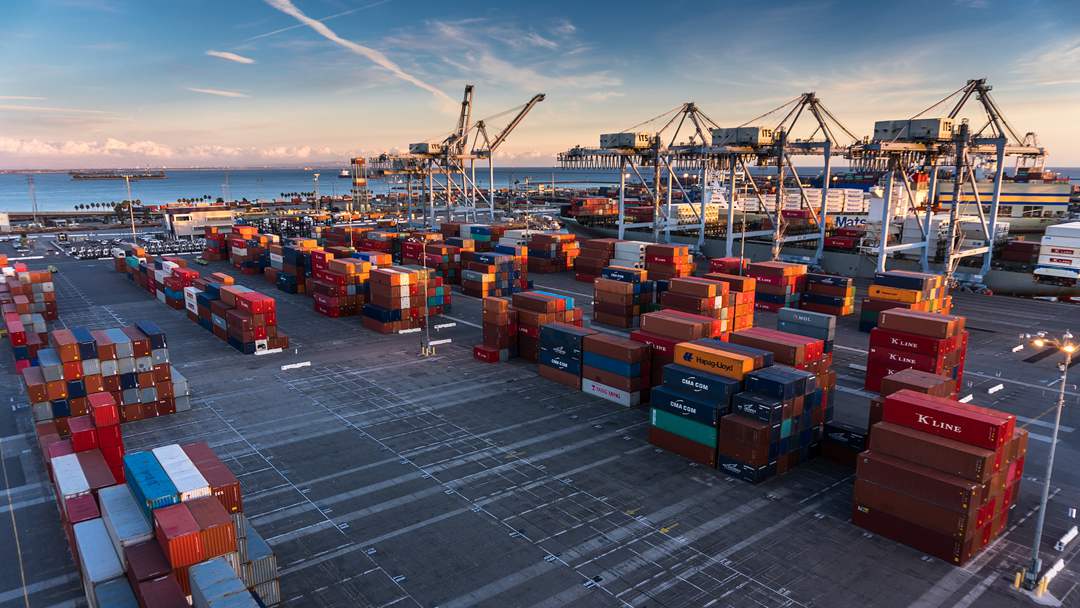
IMF urges Biden administration to remove Trump-era tariffs in a report released on July 1, 2021. /VCG
IMF urges Biden administration to remove Trump-era tariffs in a report released on July 1, 2021. /VCG
Editor's note: Bobby Naderi is a London-based journalist, guest contributor in print, radio and television, and documentary filmmaker. The article reflects the author's opinions, and not necessarily the views of CGTN.
Now that the Biden administration is revamping the way the U.S. uses sanctions to stem pressure campaigns, avoid collateral economic damage and act jointly with perceived "allies" rather than unilaterally, it should do the next best thing: End the ineffective and counterproductive tariffs on China and other trade partners imposed by former U.S. President Donald Trump. This move would be for the good of the U.S. and world economy, but for American workers and companies in particular.
According to the International Monetary Fund (IMF), continuing these trade distortions discourages trade investments and harms U.S. consumers, workers and companies. Because of the structure of the China-U.S. relationship, tariffs and the trade war - the core of U.S. trade policies - are even more damaging than unilateral sanctions. Any naysayers should take a good hard look at the "United States of America Concluding Statement of the 2021 Article IV Mission," which was issued on July 1 by the IMF.
The statement says: "It is of significant concern that many of the trade distortions introduced over the past four years remain in place." In particular, it adds, tariffs have been kept on a range of goods imported from China, trade restrictions and tariff increases should be rolled back and "Buy American" provisions should be tightly circumscribed and made consistent with the U.S. international obligations.
Let's be clear about what this means. Tariffs and the trade war on China are making a long-term negative impact on U.S. companies and consumer welfare, not to mention innovation, productivity, and GDP growth rates.
It is little wonder some U.S. senators are also urging the Biden administration to find common ground and end tariffs and protectionist tactics both in the finance and trade spheres where they say tariffs have backfired on American farmers, manufacturers and consumers. A group of seven Republican senators sent a letter to the White House in June, asking the Biden administration to end the "self-inflicted harm" from the multi-front trade war with China and European allies started by Trump.

Now is the time for Washington to act and work constructively with Beijing and other trade partners to strengthen the rules-based multilateral trading system and address longstanding global trade and investment distortions. The Biden administration has the opportunity to act and remove the trade barriers. It's the only way to turbocharge post-pandemic U.S. economic growth.
There is also the fact that the trade barriers haven't worked due to strong U.S. demand for imports from China.
For instance, despite supply constraints and solar tariffs on imported cells and modules from China, demand has remained high enough to level the playing field. The market continues to grow, the tariff-free import quota is not enough to support domestic solar module manufacture and developers, and American manufacturers and developers miss market opportunities if tariffs on the cost-competitiveness of bifacial modules made in China are not dropped - or if the quota is not increased to match demand.
The same argument could be made against China's tariffs, seeing that American importers, retailers and consumers are not the only ones bearing the impingement of the unwanted retaliatory trade constraints. Moody's Investors Service says U.S. exporters absorb most of the costs from elevated tariffs imposed by China. That's largely because the U.S. exports targeted by those retaliatory tariffs are products like agricultural goods that can be sourced from other places.
Derived from specialization and economies of scale, trade is fertile ground for partnership between China and the U.S. It is in America's long-term interest if the Biden administration resists the temptation of unilateralism and rebuilds trust and communication that speak to common interests. The new administration needs to depart from Trump's legacy and roll back the ineffective and counterproductive tariffs for their added cost and supply constraints. To solidify economic recovery and sustain long-term growth, and to avoid collateral economic damage, Washington needs to foster relations with Beijing in a constructive and competitive environment.
Structural problems in the U.S. economy exist as well, and it is wrong to frame tariffs as a measure to counter China in the name of broadly and equivocally defined national security concerns. China is living up to its responsibilities under its trade deal, while tariffs are a clear deviation from a multilateral approach. More importantly, the U.S. runs a trade deficit with many countries, while Americans foot the bill for the tariffs based on a flawed economic rationale of bilateral trade imbalance. The situation couldn't be grimmer.
Today, it is the courage to stick to promises that counts. On the campaign trail, Joe Biden said he disagreed with Trump's approach to China and that he would stand for what he believed. Part of that included easing the Trump-imposed trade tariffs. Biden needs that same courage to reverse his predecessor's policy that has been so counterproductive to U.S. economic interests. In no way do these tariffs work for Americans, especially when it comes to trade with China.
(If you want to contribute and have specific expertise, please contact us at opinions@cgtn.com.)

